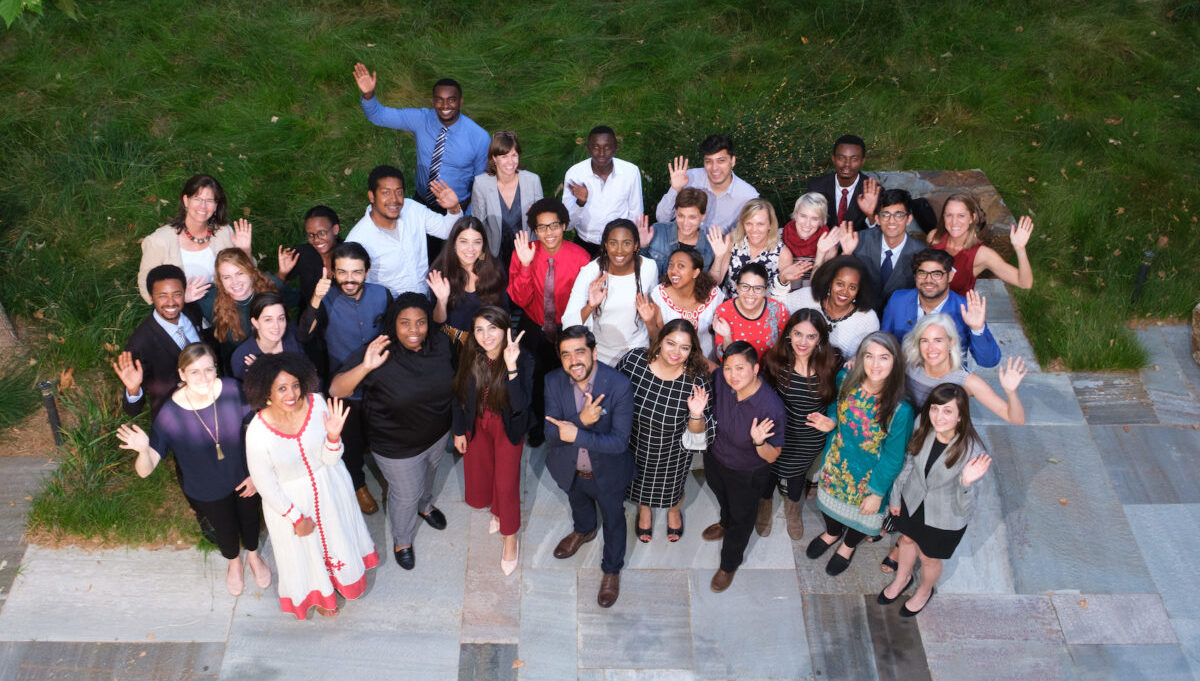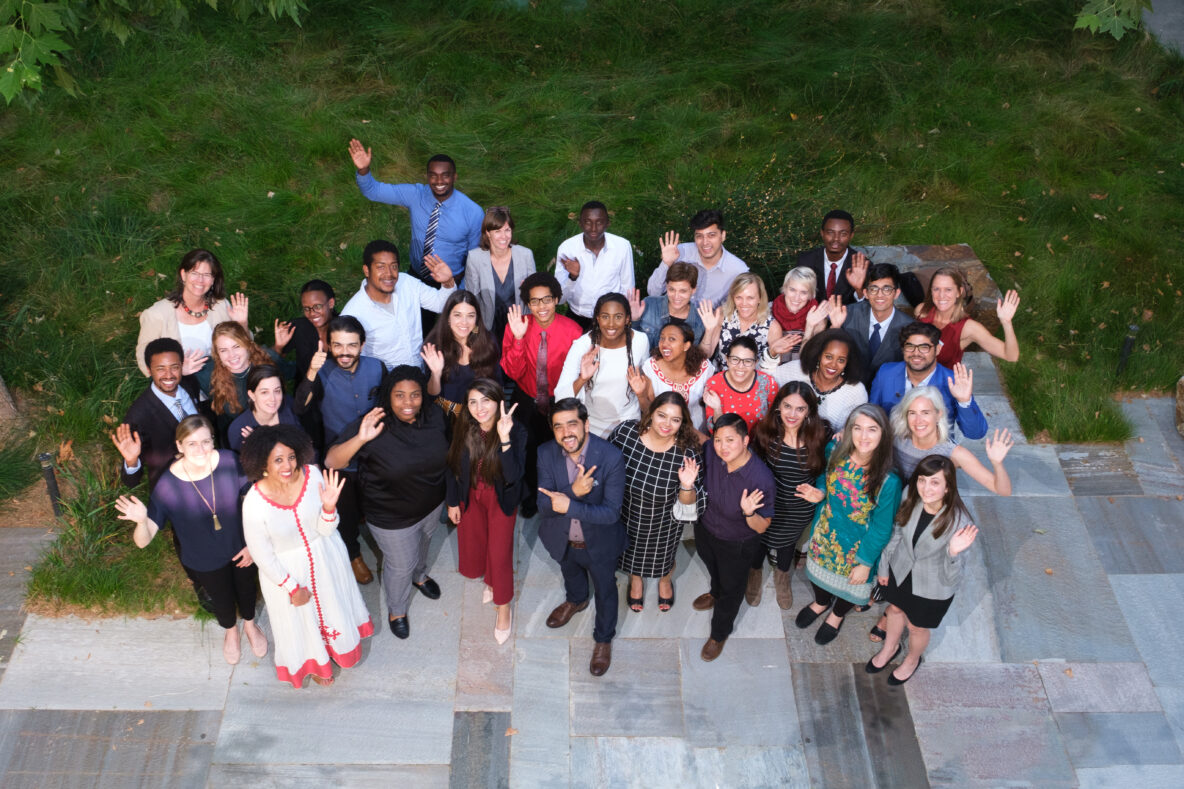
Rise Up Youth Champions in California
Earlier this year, Rise Up brought together our third cohort of Youth Champions for an intensive week-long Incubator in San Francisco. These 22 young leaders from Ethiopia, India, Pakistan, Rwanda, Mississippi, and Louisiana strengthened their leadership and built their capacity to advance sexual and reproductive health, rights, and justice (SRHRJ) for young people in their communities.
This diverse and talented group of Rise Up Youth Champions graduated from the Incubator equipped with a new network and the tools and resources to design SRHRJ solutions for the next generation. Following the Incubator, the Youth Champions each had the opportunity to apply for seed funding from Rise Up to launch their own innovative projects to promote SRHRJ.
We are excited to announce that Rise Up is funding the 10 projects below, which include storybooks that challenge gender norms, a series of videos to train medical students on safe abortion, an interactive clinic referral system to increase access to healthcare for young people, and much more:
Tyler Harden, “Missbehaving,” Mississippi, USA: increasing knowledge of and access to sexual reproductive health and rights services within Black communities in Mississippi by creating a card game that uses references to popular culture to disseminate inclusive and culturally relevant sexual health information and start conversations to build trust with medical service providers.
Ashley Sheffield, “#MyLaSexEd,” Louisiana, USA: destigmatizing sex education throughout the state of Louisana and garnering public support for legislative change to promote comprehensive sex education through #MyLaSexEd, a student-led social media storytelling campaign centered on the lived experiences of youth.
Suyash Khubchandani, “The Abortion Curriculum,” India: ensuring a safe and non-judgmental experience for women seeking abortion services in public hospitals by developing a safe abortion workshop and toolkit in medical universities around Mumbai to sensitize the next generation of doctors and medical students on safe abortion.
Jitender Bhardwaj, “Comics for Change,” India: educating young people on taboo and stigmatized sexual and reproductive health and rights topics like menstruation, violence stemming from toxic masculinity, and childhood sexual abuse through relevant and engaging digital stories and comic books.
Anmol Zehra, “Shaoor,” Pakistan: promoting comprehensive sex education through the development of comic zines dealing with sexual and reproductive health issues relevant to Pakistani youth in a way that is interactive, practical, and fun.
Sarmad Muhammad Soomar, “WO KAHANI (That Story),” Pakistan: advancing gender equity, respect, and equal opportunity among children through an innovative storybook with diverse characters that promote dignity and respect and transform traditional gender roles.
Mahlet Alemayehu, “Inclusively Friendly Sexual and Reproductive Health and Rights,” Ethiopia: improving sexual and reproductive health and rights among youth with visual impairments through inclusive and youth-friendly tools, including a braille and audio sexual and reproductive health dictionary and bracelets that allow them to easily track their menstrual cycles.
Bersabeh Kassaye, “SHE Matters!,” Ethiopia: preventing early marriages in the Amhara Region in rural Ethiopia by recruiting and training peer educators to conduct sexual and reproductive workshops that equip students with knowledge of their rights and raise awareness of the negative impacts of early marriage.
Jean (Berky) Uwimana, “SAVE Project,” Rwanda: increasing availability of safe abortion in Rwanda by improving the knowledge and capacity of medical students at the University of Rwanda around safe abortion through the creation and dissemination of a series of short training videos.
Muzungu Sylvain, “ABC Service Navigator,” Rwanda: improving access to abortion and contraceptives for adolescents, youth, and unmarried women in Kigali by leveraging technology to create a youth-friendly clinic mapping and referral system.


